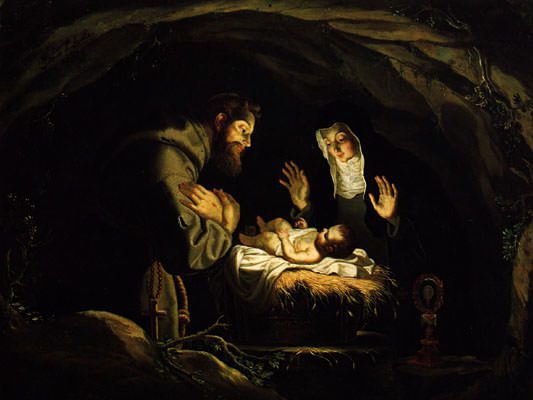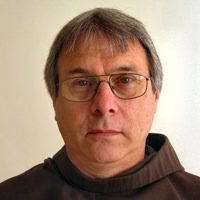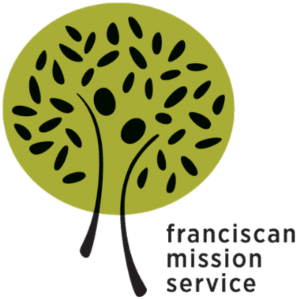Francsican Friday: Humbleness of the Incarnation and the Goodness of God

In the last week of Advent the readings turn to the theme of the coming of the Lord.
Readings from the Old Testament remind us of the promises of God that are being fulfilled, and the New Testament readings speak to us of the lives of those who took part in the drama of the birth of the Savior. We hear about Zecariah, Elizabeth, Herod, Joseph, Mary and the people of the region. The stories are down-to-earth and allow us to insert ourselves into the events being described.
 |
| St. Francis and St. Clare adoring the Baby Jesus. By Josefa de Ayala Figueira, public domain. |
Saint Francis of Assisi was taken by the story of the coming of Jesus to earth, and he was especially captivated by what he felt was the humility of the Incarnation. Jesus did not come into the world as one of the rich and famous, but when God became flesh in the womb of Mary and was born in Bethlehem, no pomp and circumstance were part of this unbelievable event.
The Gospels tell us that his first visitors were shepherds, surely not important people in the time of Jesus. But in this birth Francis saw the love of God for the world. Creation for Francis was a powerful, living mural of God’s love. Throughout his life Francis proclaimed this love, and sought to imitate it in all that he did.
Soon after the death of Francis, the brothers who followed him sought to express his intuition of God’s love in their works of philosophy and theology. Theologians in the Middle Ages needed to make a fundamental choice as they began their work. They needed to decide on a starting point. Would it be the One God or the Triune God?
Franciscans chose to start with the Triune God. The mystery of the Triune God stresses God as essentially relationship; they taught that the nature of God is love and goodness. They adopted the medieval axiom bonum est sui diffusivum (“goodness is diffusive of its very self”) as the heart of their approach. God is goodness, and this goodness is expressed in the relationship of the Father, Son and Spirit. This goodness manifest within God, ad intra, then overflows outside the Trinity, ad extra, into the act of creation. Creation thus shares in the goodness of God.
Francis was amazed at this generosity of God. He constantly sang God’s praises and invited all people and all of Creation to do the same. He worked ceaselessly to spread the goodness that comes to us as gift through the love of God. If “good is diffusive of its very self,” and we share in the goodness of the Trinity which has overflowed into creation, we are also called to share this goodness.
Our participation in the transformation of the world into God’s kingdom is nothing less than our response to the gift of the limitless love that God has shared with us.
Dear God help us to see the manifestation of your love in the world around us, to read your message in the beauties of nature and of our brothers and sisters. Give us the courage to share this gift with all of your creatures, and to promote justice, peace and love of creation in all that we do.
Fr. Joseph Rozansky, OFM is a Franciscan friar of Holy Name Province. He is currently the director of the General Office for Justice, Peace and the Integrity of Creation at the OFM headquarters in Rome. He holds a Masters in Theology from the Washington Theological Coalition, and a Masters in Economics from American University in Washington, D.C. His first assignment was in Goiás, Brazil, where he worked from 1975 to 1985. He worked in formation of new Franciscans for sixteen years, in both Brazil and the United States. He has been in his current position since 2005.
Tagged in:


